#preventing norovirus
Text
Preventative Measures: Strategies for Limiting the Spread of Norovirus Infection.
Norovirus is a highly contagious virus that causes gastroenteritis, an inflammation of the stomach and intestines. It is commonly known as the stomach flu or food poisoning. The symptoms of norovirus include nausea, vomiting, diarrhea, stomach cramps, and fever. This virus spreads through contaminated food or water, or by coming into contact with an infected person or surface.
To prevent the…
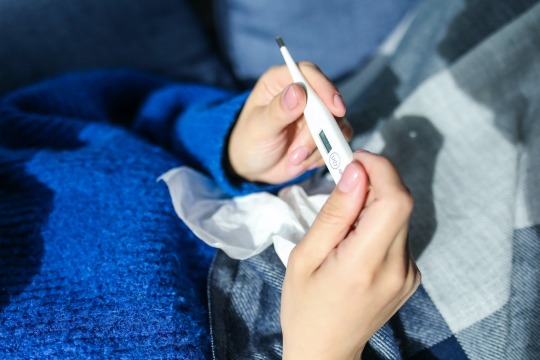
View On WordPress
#avoid others#contagious#disinfecting#handwashing#health#illness#Noro#preventing norovirus#sickness#virus
0 notes
Text
Shielding Yourself From Norovirus: Causes, Symptoms, And Prevention Tips
Norovirus is the leading cause of gastroenteritis worldwide. Our latest blog post dives deep into what causes Norovirus, its symptoms, and invaluable tips to keep you and your loved ones safe. Click the link below to stay informed!
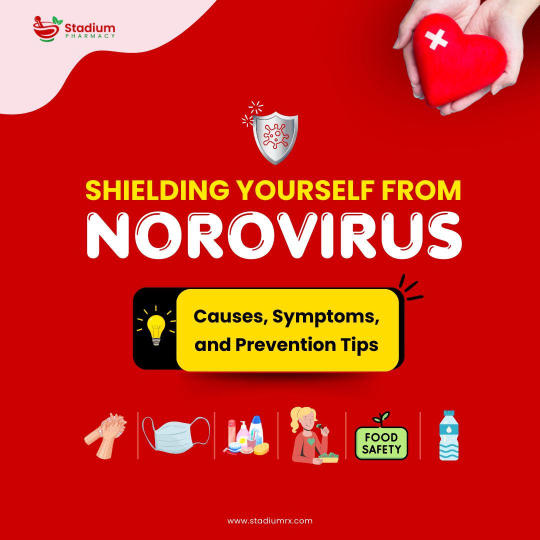
0 notes
Text
Norovirus - Causes, Prevention, Symptoms, Treatment
Norovirus is also called the stomach flu or stomach bug. sometimes referred to as the winter vomiting disease. Infection is characterized by non-bloody diarrhea, vomiting, and stomach pain
Causes
Drinking contaminated food
Eating Contaminated Food
Contact with an infected person
Touching contaminated surfaces and objects
Prevention
Wash hands with soap and water frequently
Avoid eating…

View On WordPress
0 notes
Text

Hiiiii it's 2024 and there are hella covid, RSV, flu, and norovirus infections going around! You might want to start masking again if you stopped.
RSV, flu, and covid are all airborne and masks have been proven to help prevent transmission. When you or others around you cough, sneeze, or breath heavily, millions of germs fly out into the air where they can infect others. We know that covid can have long lasting and scary effects, but flu and RSV can both lead to a lot of pain, loss of working hours, and death in babies, the elderly, and immunocompromised people.
Norovirus is not a respiratory condition but it is a highly contagious vomiting and diarrhoea bug that can be spread by droplet transmission or by touching your face, which masks help prevent. The infection can lead to long term stomach pain and IBS. The saliva of someone who has had an infection can still contain active bacteria 12 days after the infection has passed.
10 notes
·
View notes
Text
Norovirus on the PCT . . . How an outbreak spreads along the trail
September 24
By Pien Huang for NPR
I was just corresponding with another PCT-hiking friend about the few times we have felt unsafe on the trail. All of our examples related, not to bears or rattlesnakes or even lightning (I might have included lightning had I thought about it more), to human encounters. A lost soul or two on the trail, hunters combining alcohol and firearms, a camping area near a road. Now here is another thing to worry about . . . norovirus. It is a good reminder not to abandon hygiene in the wilderness. RH

EIS officer Arran Hamlet walks into the Government Meadows site to conduct environmental sampling for norovirus.
Last September, Kevin Quinn was trekking through a remote, mountainous region in central Washington state, when he started feeling sick. "At first, I thought it was just a stomachache," he says, "But when we got to the campsite I started throwing up, and it started coming out the other end as well."
Quinn was on the trail with his daughter, who had left her job so they could hike together. After months of hiking, he found himself wiped out at a campsite in the middle of nowhere.
"I had heard about the norovirus for years, but it was always in the context of 'Oh, there's a cruise ship in the Caribbean,'" he says, "You don't think about this being an issue when you're out on the Pacific Crest Trail."
Norovirus is a highly contagious virus that can cause serious gastrointestinal distress for several days. It's often associated with enclosed, crowded settings like cruise ships, health care facilities and childcare centers.
But it also crops up in the wilderness – like in an outbreak among hikers like Quinn last year which was documented in a recent investigation by the Centers for Disease Control and Prevention.
Call in the disease detectives
After a stream of sick Pacific Crest Trail hikers came through the Washington Alpine Club Lodge near Snoqualmie Pass last summer, a volunteer named Robert Henry closed the dorm-style lodge and emailed health authorities.
"My concern at the time was to make sure that the hikers on the trail didn't get any worse, and to make sure that the volunteers at the Washington Alpine Club didn't contract whatever it was they were bringing in," Henry ways. He also worked to warn other hikers about the threat.

EIS officer Dr. Arran Hamlet observes a water source being tested for environmental contamination of fecal waste and norovirus.
Hamlet focused on a 70-mile stretch of trail south of the Lodge, where ill hikers were coming from. One common rest stop, he learned, was a remote log cabin in the meadows, with a pit latrine and a stream that's used for drinking water.
Hamlet and his team hiked out to the cabin and tested water from the stream. They also swabbed the toilets, the door handles, the tabletops, the poker chips – anything people were touching. While the water samples came back clean, "every single [surface] swab tested positive for fecal contamination," he says.
"This doesn't mean that we can see human feces on things," he adds, "but at some point in time, there was transmission of human fecal contamination onto every surface in the cabin we swabbed, and also everywhere in the latrine."
The results of the investigation were published this month in the CDC's Morbidity and Mortality Weekly Report. Investigators concluded that there was an outbreak of norovirus on the trail last summer that was spreading between hikers and that "exposure to contaminated surfaces within the cabin and ... latrines likely amplified transmission."
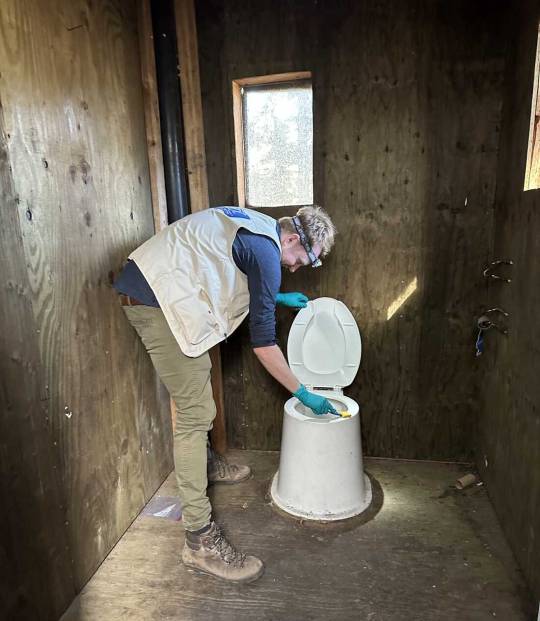
EIS officer Dr. Arran Hamlet swabs a backcountry pit latrine for norovirus sampling during an investigation for an outbreak of gastrointestinal illness among Pacific Crest Trail Hikers in 2022.
Shanna Miko, a nurse epidemiologist at CDC, was part of the field team on the Pacific Crest Trail study — and it wasn't her first norovirus-in-the-woods investigation. Last year, she traced an outbreak at the Grand Canyon, among people who were backcountry hiking and whitewater rafting.
"These are very well-planned trips. For many people, they're once-in-a-lifetime," she says. Travelers often read books and blogs in preparation, and get advice from others who have done the trip before them, accumulating trail wisdom – "places where people frequently stop, or places that have shelters where people frequently sleep over," good places to get water, or use the bathroom, she says.
These hubs, which seem so remote, see thousands of people – in varying levels of wellness – pass through in a season. They may not leave visible traces but some may leave germs, like norovirus, that can live on environmental surfaces for a long time, Miko says. (According to the CDC, this hardy virus can stay alive on surfaces for "days or weeks.")
Hand sanitizer doesn't cut and other advice for staying well
With norovirus, hand sanitizer and common water filters don't work. The virus is small, and "extra sticky" on skin, Miko says. And it takes just a few dozen viral particles to make a person very ill.
Miko says there are ways that hikers can cut their risks.
Always wash your hands with soap and water after you have a bowel movement – and wash them again before you eat. "The soap is a great detergent to remove the virus from your hands," she says. While any soap and water will work, she recommends biodegradable soaps in protected national parks and backcountry woods to reduce the impact on the environment.
Make sure to drink and cook with good, clean water. Pay attention to where the water comes from, and treat it properly. "Boiling for at least three minutes is the best way to kill everything you would typically come across," Miko says. And note: Most water filters are good at removing bacteria and common parasites but they don't cut it when it comes to norovirus. You'll need to layer on either chemical treatment or UV light treatment to kill the virus. (Here's the CDC's breakdown of what works for which pathogens.)
If you do fall ill, shelter in place if you can. This is for your own safety, and for the sake of others, "so you aren't seeding norovirus particles along the trail and putting others at risk," Miko says. This is not the time to try to push ahead but to rest and hydrate. "If possible, try to keep your defecation far from the trail and bury it, and don't prepare food anywhere near where you're using the restroom or vomiting," she says.
The worst of the symptoms usually passes in two to three days, though "you can still spread norovirus after you feel better," Miko says. She recommends waiting at least two days after symptoms have resolved before continuing on.
Norovirus was the last straw

Kevin Quinn set out to hike the Pacific Crest Trail with his daughter, Katie, who had left her job so they could hike together. Norovirus derailed their plans.
He was thirsty, he was really tired – and while he filtered the water, he skipped the additional, chemical treatment. Soon, he knew he'd made a mistake. "I was completely debilitated. I didn't have the energy to set my tent up," he recalls, "All I was doing was, like, every 15 minutes, going off into the woods and either throwing up or having diarrhea."
After a night of being very ill, Quinn and his daughter made a long, slow trek out of the woods. "We never made the whole trail," he says, "We just decided to call it quits."
Earlier in the summer, he caught COVID, which derailed his trail plans for a month. Up ahead, there were wildfires and trail closures. For Quinn, getting norovirus was the last straw.
A year later, he still regrets that he didn't take the time to treat the water properly.
To other hikers – he says: heed the signs, wash your hands and make sure your water is clean. In his experience, it's not worth the risk.
And, we would add, that water treatment options like the Steripen (using UV technology), would seem to be more effective.
9 notes
·
View notes
Text
I always forget just how much my undergrad's legendarily bad norovirus epidemic and the resulting anxiety/preventive measures affected me until I encounter other people being blasé about the risk of spreading a stomach bug
#isabel.vent#the emetophobia doesn't help either#but like y'all need to understand. noro spreads via surfaces and stays around for a long hecking time if you don't clean properly#my coworker was like oh yeah i might be coming down with what my wife and kid had!#and when he said it involved stomach bug symptoms i was like absolutely not#I'm very scared now so time to take a ridiculously hot shower and wash all my clothes
2 notes
·
View notes
Text
Updates of the Week:
- I'm modelling for a life drawing fundraiser later today! Very excited! I'm a cabaret performer, 🌶️ w0rk3r & model generally, but haven't done life drawing modelling in years! I'll definitely get some photos!
- I've been to two cabaret shows this week and one last week (I spent a lot of time at them, but have been trying to make more time for shows I'm not performing at). I did bump into an ex and get paid with him for speed dating but we coped! I supported some amazing performers friends and my outfits slayed so.
- I've been making more earrings (the T vial earring in the photo below is actually one of my (empty) T vials that I made into an earring) and selling them to raise money for the same cause as the life drawing, but also been applying to markets to sell them to get more funds my medical expenses too! Got some cool gothic charms & I keep hyper focusing on it for hours haha.
🦇🖤🕸️🌶️😈


Yes I 'still' wear a face mask in public. 1) I'm immunocompromised I don't get to pretend viruses don't exist, 2) C0VID cases are rising, not falling, 3) C0VID isn't the only reason to mask - you're preventing yourself spreading things like the flu and Norovirus (all of which would likely kill me if I caught them). Masks are community care, they protect your immunocompromised kin and they prevent you singlehandedly making someone Disabled (by not giving them a virus that leads to CFS/ME and Long C0VID.
Pronouns: they/them
3 notes
·
View notes
Note
Buffets r gr8 fite me
(For real though, i really like them, however i can understand where your concerns come from)

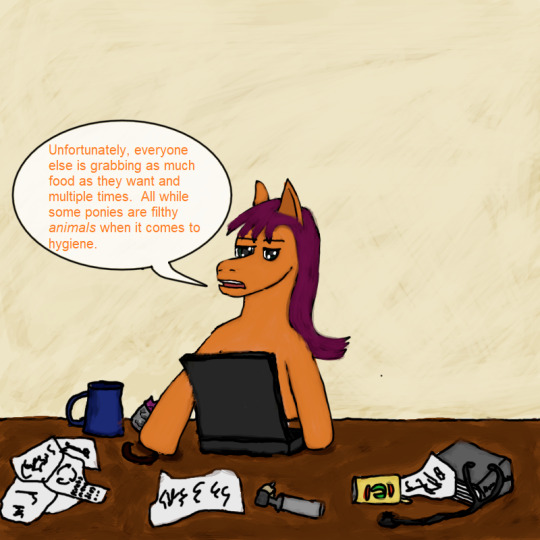
On Buffets and My Absolute Disgust For Them
Yeah. I stand by my statement that buffets are fucking gross. It's way too easy for poor food hygiene to cause contamination which can lead to lots of fun health concerns such as Norovirus, E. coli, and Listeria, which are common foodborne illnesses. Typically, these can be avoided by cooking food thoroughly. Also, they can be avoided by making sure that the food that you don't plan on eating stays in the refrigerator to prevent/slow microbial growth. So, like, the complete opposite of letting the food sit under a heat lamp for hours in the open.
So yeah, buffets are not really my thing. Great if they're yours but I'll pass lol.
#mlp ask blog#my little pony#askpokeeosin#buffets#my litte pony friendship is magic#mlp fim#mlp g4#mlp oc pony#earth pony#pony ask blog#ask pony blog#ask blog#buffet#year 1#medicine#foodborne illness
7 notes
·
View notes
Text
How to Avoid Food Poisoning Over the Holidays

The holiday season is a time for joy, celebration, and indulgence in delicious meals with family and friends. Amidst the festive cheer, it's crucial to stop and prioritize food safety to ensure everyone enjoys a healthy and happy holiday season.
When traveling abroad, try to avoid foods that are raw or might not have been cooked fully. Look for steaming hot food to ensure the dish is fresh and bacteria-free. Follow the locals and eat where they eat. Check reviews online before choosing a place to eat. Wash your hands regularly, especially before eating, and carry hand sanitizer with you. If you do get food poisoning, drink lots of water and replace lost salts and minerals with rehydration sachets.

The most common types of food poisoning are caused by various bacteria and viruses. Some of the most common causes of food poisoning include:
- Campylobacter: It is the most common cause of food poisoning and is often associated with raw or undercooked poultry, unpasteurized milk, and contaminated water.
- Salmonella: This bacterium is commonly found in undercooked poultry, raw eggs, and raw meat. It can also be present in fruits and vegetables due to cross-contamination. One of the biggest source of salmonella food poisoning comes from the popularity of romaine salads, so wash your green leafs well.
- Escherichia coli (E. coli): E. coli can be found in undercooked ground beef, unpasteurized milk, and raw vegetables. It can also be transmitted through person-to-person contact and contaminated water.
- Norovirus: This virus is a common cause of food poisoning and can be transmitted through contaminated food and water. It is highly contagious and can spread quickly in settings such as cruise ships and nursing homes.
- Listeria: Listeria can be found in unpasteurized dairy products, deli meats, and certain soft cheeses. It poses a higher risk to pregnant women, newborns, and adults with weakened immune systems.
These are just a few examples of the many types of food poisoning. The symptoms of food poisoning can include diarrhea, stomach pain, nausea, vomiting, and fever. It's important to seek medical attention if you experience severe symptoms or if you belong to a high-risk group, such as pregnant women, young children, older adults, and individuals with weakened immune systems.
The holidays are a time for feasting with family and friends, but it's important to take precautions to avoid food poisoning. Here are some tips to help prevent foodborne illness during the holidays:
- Thoroughly Wash Your Hands:
The foundation of food safety begins with proper hand hygiene. Before handling any food, especially raw meat and vegetables, wash your hands with soap and warm water for at least 20 seconds. Encourage everyone involved in meal preparation to follow this practice diligently.
- Separate Raw and Cooked Foods:
Cross-contamination is a leading cause of foodborne illness. Keep raw meats, poultry, seafood, and their juices separate from ready-to-eat foods to prevent the spread of harmful bacteria. Use separate cutting boards, utensils, and plates for raw and cooked items. Prevent juices from meat, chicken, turkey, and seafood from dripping or leaking onto other foods by keeping them in containers or sealed bags.
- Cook Food to the Right Temperature:
Cooking food to the proper internal temperature is crucial for killing harmful bacteria. Invest in a food thermometer and use it to ensure that meats, poultry, seafood, and leftovers reach the recommended temperatures. Refer to USDA guidelines for specific temperature recommendations. Germs can grow rapidly in the danger zone between 40°F and 140°F. Keep hot food hot (above 140°F) and cold food cold (below 40°F). Use pasteurized eggs for dishes containing raw eggs. Salmonella and other harmful germs can live on both the outside and inside of normal-looking eggs. Many holiday favorites contain raw eggs, including eggnog, tiramisu, hollandaise sauce, and salad dressings. Store eggs in their original carton.
- Chill Perishable Foods Promptly:
Refrigeration is your ally in preventing bacterial growth. Perishable foods, including leftovers, should be refrigerated within two hours (or one hour if the temperature is above 90°F/32°C). Ensure your refrigerator is set to 40°F (4°C) or below and promptly consume or freeze leftovers.
- Mindful Thawing Practices:
If you plan to serve frozen items, such as turkey, make sure to thaw them safely. The safest methods include thawing in the refrigerator, in cold water, or in the microwave. Avoid thawing at room temperature, as it can lead to bacterial growth. Thaw turkey in the refrigerator, in a sink of cold water that is changed every 30 minutes, or in the microwave. Never thaw your turkey by leaving it out on the counter.
- Be Cautious with Buffets:
Buffet-style meals are common during the holidays. However, they can pose a higher risk of foodborne illness due to extended exposure to room temperature. Keep hot foods hot (above 140°F/60°C) and cold foods cold (below 40°F/4°C). Use chafing dishes, ice trays, and other equipment to maintain safe temperatures.
- Stay Informed about Recalls:
Before heading to the grocery store, check for any food recalls that may affect the items on your shopping list. Stay informed about potential contamination or safety concerns related to specific products. Many authorized food and safety departments offer email alerts on food notifications.
- Practice Safe Egg Handling:
Raw or undercooked eggs can harbor Salmonella. Use pasteurized eggs in recipes that call for raw or partially cooked eggs, and cook egg dishes thoroughly. Avoid recipes that involve raw or lightly cooked eggs, especially for vulnerable populations like young children, pregnant women, and the elderly.
- Hydrate and Use Safe Water Sources:
Ensure that the water you use for cooking and drinking is safe. If you have any doubts about the water quality, use bottled water or bring tap water to a rolling boil for at least one minute before using it in food preparation.
- Trust Your Senses:
If something looks, smells, or tastes off, trust your instincts. Discard any food that seems questionable, and don't take chances with items that may have been improperly stored or handled.
You can significantly reduce the risk of food poisoning during the holiday season. Remember that food safety is a shared responsibility, and everyone involved in meal preparation plays a crucial role in ensuring a safe and enjoyable celebration. Prioritize hygiene, follow recommended cooking temperatures, and stay informed about potential risks to safeguard your festive feasts and make cherished holiday memories for everyone.
DecorWorks showcases the latest trends and tips in home decor and interior design to inspire your best life. We curate architecture and design inspiration for global audiences, and show you practical tips to create any imaginable space.
Read the full article
2 notes
·
View notes
Text
I think one of the problems with the way we talk about being able/disable is that we often talk about it like they are two distinct groups of people. Like this group over here is able, that group is disable. No one changes groups, there’s no fuzzy in the middle area.
The fact is, people do often change groups. There is a fuzzy in the middle area.
Anyone can become disabled. Some disabilities are temporary. Breaking a bone, a bad sprain, etc and your disabled...for a while. The world is suddenly no longer built around your abilities but by what society deems to be “normal” people, never minding the fact it almost everyone will be disabled at some point in their lifetime.
Some people who are disabled stop being disabled.
Some people have disabilities that the world does not see as disabilities (i.e. glasses).
Some people have disabilities that are so well compensated for by technology or medication that they aren’t functionally disabled in that they are not hindered by it while moving through the world our society developed.
Some people have disabilities that are...minor.
I’m thinking of that today while dealing with my “managed” POTS. I’m lucky; after a scary period of time after my condition first developed, I learned and was capable of managing my POTS with diet and exercise. The lightheadedness receded to something sporadic, minor, manageable. I do deal with more daily ongoing fatigue than I think most people realize, but once again, it’s become manageable. I manage. It doesn’t functionally prevent or serious hinder most life activities.
Most of the time.
Earlier this week I got the norovirus and it knocked me on my ass for a few days. I’m better now or at least recovered from the norovirus. But spending a couple days in bed means my POTS has flared the fuck back up. Because laying down long periods makes it worse and obviously I’ve strayed from doing the things I need to do to keep myself alright.
So, today it’s only 9am now and I’m back to work. And I’m lightheaded, I’m dizzy, I’m exhausted. And I have to rebuild myself back up to the routines and practices that I need to keep me health and more abled, but I’m also reminded that I’m not and never will be fully abled just like in many ways I’ll never fit society’s definition of being disabled either.
#disability#ablism#thinky thoughts#of course thing you can get into the whole fact that I have a language processing disorder#and c-ptsd#but you get the point
14 notes
·
View notes
Link
2 notes
·
View notes
Text
I don't know how coherent this will be, bear with me, I'm writing while stricken with the plague and all.
So I'm sitting here with a thankfully mild case of covid and because I soothe my anxiety with information, especially my medical anxiety, I've been doing a lot of googling about like, how to take care of yourself while you have covid, details about this variant, all that stuff. And I've come to this conclusion that's very sad and kind of interesting. (Please note that I'm dealing with the English-speaking mainstream internet as a white American, so any generalizations in this post are through that lens.)
All our instructions for how to care for ourselves seem to stop after "don't die."
I've found lots of articles, especially from earlier in the pandemic, that say about what you'd expect. A lot of isolation guidelines and encouragement to get your vaccines, and very little "hey this is what over the counter cold med might make you less miserable" or "this kind of juice is best for a sore throat." And it matters that they're mostly from early in the pandemic, I think. They're all aimed at "here's how not to die and how to help other people not die." Which, please don't get me wrong, is fucking important. Please do isolate and wear your damn masks and get your damn vaccines.
But like...why do we stop there? (I know why, it's capitalism and the calvinist work ethic, it's a rhetorical question.) Wouldn't it be nice to talk about prevention of disease and amelioration of symptoms even when they're NOT fatal? Why is that our line?
Earlier this year my husband got a norovirus. It sucked. And I had already resigned myself to "oh, we're in the same house, it's inevitable I'm going to get it too" when we thought, hey what if we actually looked up how it spreads and if we can do things to minimize it? And we did, and I didn't get sick. That was nice! We're a pair of well-educated thirtysomethings from middle class backgrounds, how did it take us this long?
It feels like, culturally, we treat minor illness like an inevitability and an inconvenience. We push ourselves through migraines and go to school with full boxes of tissues instead of staying home with "just a cold." Which is awful for two reasons. First of all, it puts the immunocompromised at risk of ACTUALLY DYING, please fucking care about that.
Second of all, how sad is it that the standard of comfort we aspire to is "not dead"? That the standard for not calling out of work is "standing up and not vomiting"? I'm unlikely to get seriously ill from my current covid infection, just like I wouldn't have been sick more than a couple days if I'd caught that norovirus. But it still sucks! I don't want to be stuck in my bedroom coughing and wondering if I'm going to miss Christmas! I don't want to inflict that on anyone else either! I want articles telling me about how to make this week not suck, and I want a cultural narrative that cares about protecting people from feeling bad!
And yes I know some parts of our society it's a hard enough fight getting them to care about the not-dying, not-killing-people part. But I still want us to strive for better than that.
#tw covid#cw covid#it's all capitalism's fault#and calvinism#stop the idolization and acceptance of suffering as noble and necessary 2022
1 note
·
View note
Text
Shielding Yourself From Norovirus: Causes, Symptoms, And Prevention Tips
Norovirus is the leading cause of gastroenteritis worldwide. Our latest blog post dives deep into what causes Norovirus, its symptoms, and invaluable tips to keep you and your loved ones safe. Click the link below to stay informed!
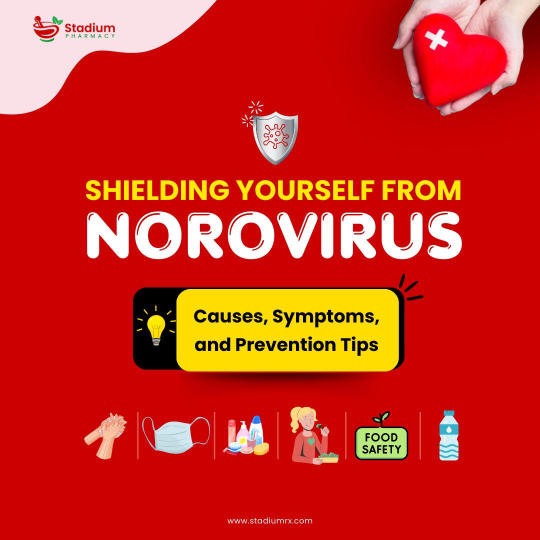
0 notes
Text
Avoiding the Preventable
On my first PCT hike I was a little younger and a lot more naive. I was with my two friends and we were in the Cascades doing something we had never done before. We were spending a month walking from the Columbia River to Rainy Pass in Washington state. It was late June when we began our journey. The rainy times are not completely done by then. Needless to say there was plenty of early summer snowmelt bringing fresh water cascading out of the mountains.
We drank freely and often from the streams we found along the way. The water was cold, crisp, and delicious. Soothing to parched throats and reinvigorating to tired bodies. All was just fine until about a week after we returned to our respective homes. A week after slowly integrating back into 'normal' life I began to not feel so great. Severe abdominal cramps, diarrea, and general fatigue were keeping me sidelined. I wasn't sure what was happening to me. Whatever it was it wasn't good.
I got to a doctor who had recently studied parasitic diseases and recognized my symptoms as giardia. To be sure he had me do a lab test but got me going on a strong medication to clear the intestinal cysts that make giardia so nasty. The meds turned things around pretty quickly. Gladly I was feeling more like my normal self in a few days.
The lesson learned was, 'DON'T drink the water!'. I knew that my future adventures in the mountains would include some form of purification or filter system for any water I was intending to. drink. I clearly knew I DID NOT want to experience giardia again if I could help it. That was the start of a long history of making sure I was being sensible about drinking water in the backcountry.
This has led me practice everyday preventative actions to keep myself and others as safe as possible. These days we are really concerned about preventing the spread of Covid 19. We also don't want the flu, or the common cold, especially when we are so far from home. Even out of doors it is still important to cover your mouth when coughing or sneezing. None of the above mentioned infections stop at trailheads. You can reduce your risk of Covid with measures like being fully vaccinated, wearing a mask where appropriate, and staying outside. Even before the Covid outbreak many PCT hikers were fist bumping up and down the trail as both a greeting and preventable measure.
Gastrointestinal issues are an often preventable cause of wilderness medical emergencies. By washing your hands you can decrease your chances of contracting stomach ailments. Norovirus is a particularly contagious virus. Outbreaks have occurred on trails around the world. Simply washing your hands frequently with biodegradable soap at least 200 feet from water sources can make a real difference towards preventing many health issues. Illness often begins suddenly and lasts about 1 to 2 days, with stomach pain, nausea, diarrhea and vomiting. Plenty of time to ruin a wilderness experience. Noroviruses are found in the stool or vomit of infected people and on infected surfaces that have been touched by ill people, such as pipe gates or containers of water at a cache.
Washing your hands, or at least using hand sanitizer can lessen the opportunity for a virus to strike. Other strategies include not sharing food or drinking from the same water bottle. Try not to touch your eyes, nose, or mouth. Finally, boil or chemically treat water as most filters will not remove viruses alone.
This probably reads like a horror story. Well, if you get sick you will be starring in one. No one wants that. I was so happy in my misery with giardia to be home and not miles from a road and a ride out. Taking a few preventable measures can keep you moving in the direction of your dreams down the trail.
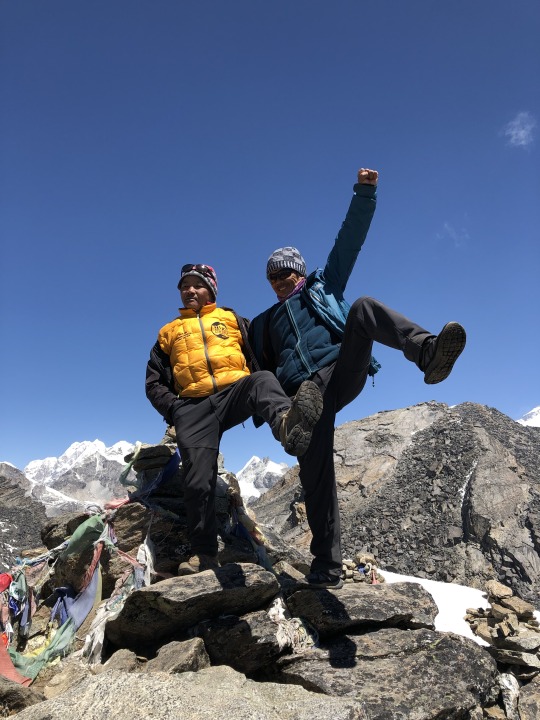
1 note
·
View note
Text
The public health department on the Caribbean Island of St Eustatius has issued a warning about an outbreak of norovirus, a highly contagious viral infection that causes gastroenteritis. The St Eustatius Health Care Foundation has confirmed an increase in cases of vomiting and diarrhea, with laboratory analysis confirming that the norovirus is responsible for the outbreak. Symptoms of gastroenteritis include diarrhea, vomiting, nausea, and stomach pain. The public is advised that there is no specific medication to treat norovirus, and the most important treatment is to prevent dehydration by drinking plenty of fluids, especially water. Most people will recover within 1 to 3 days.
The norovirus spreads easily through contaminated food and water, as well as by contact with an infected person. To prevent the spread of the virus, the public is encouraged to practice proper hand hygiene, wash fruits and vegetables carefully, and clean contaminated surfaces immediately with a bleach-based household cleaner. It is also important for individuals to stay home from work, school, or other activities while experiencing symptoms and for at least two days after symptoms have stopped. If symptoms worsen or persist for more than three days, affected individuals should seek medical attention.
The St Eustatius public health department emphasizes the importance of taking precautions to prevent the spread of the norovirus outbreak. Proper hand hygiene, including washing hands with soap and water regularly, is crucial in stopping the transmission of the virus. Additionally, cleaning contaminated surfaces with a bleach-based cleaner can help kill the virus and reduce the risk of further infection. It is recommended to stay hydrated by drinking plenty of fluids, particularly water, to prevent dehydration, which can be a serious complication of gastroenteritis.
Individuals who experience symptoms of norovirus, such as diarrhea, vomiting, nausea, or stomach pain, are advised to stay home and rest until symptoms resolve. It is important to avoid contact with others to prevent further transmission of the virus. If symptoms persist for more than three days or worsen, it is recommended to seek medical attention from a healthcare provider. By following these guidelines and taking necessary precautions, the public can help control the spread of the norovirus outbreak on St Eustatius and reduce the risk of further cases.
In conclusion, the norovirus outbreak on the Caribbean Island of St Eustatius has raised concerns among the public health officials. The health department has provided guidelines on how to prevent the spread of the virus, including practicing proper hand hygiene, cleaning contaminated surfaces, and staying home while experiencing symptoms. By following these recommendations, individuals can protect themselves and others from contracting norovirus and help control the outbreak. It is important for all residents of St Eustatius to be vigilant and take necessary precautions to avoid further cases of gastroenteritis caused by the norovirus.
0 notes
Text
By implementing proactive measures to prevent norovirus infection and effectively managing symptoms when they arise, you can pave a path to digestive wellness free from the disruptions caused by this contagious virus. Remember to prioritize good hygiene, maintain a clean environment, and seek medical attention when needed. With these strategies in place, you can chart a course to a healthier, norovirus-free future.
0 notes